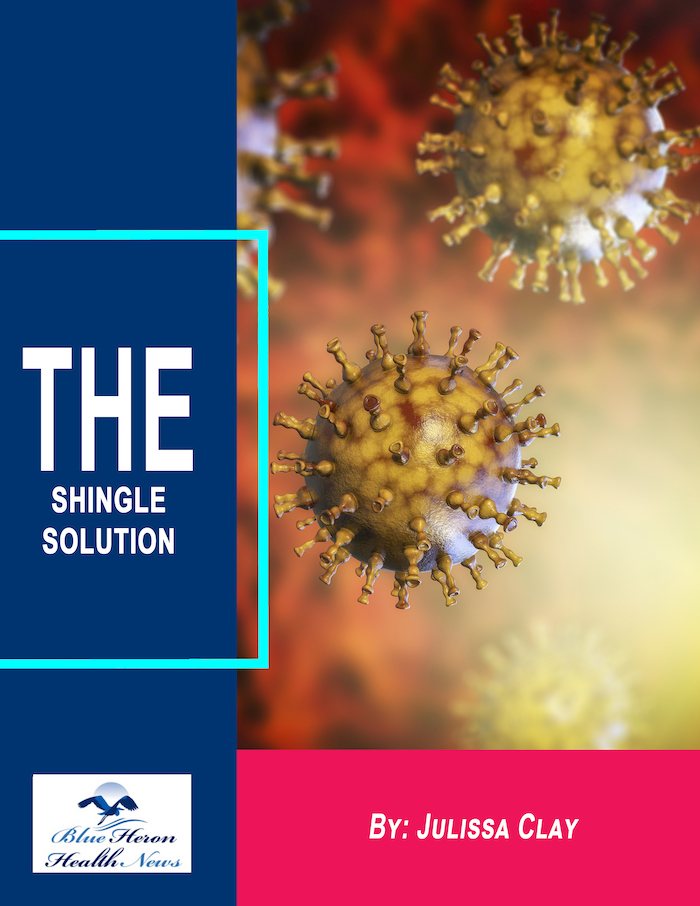
The Shingle Solution™ By Julissa Clay This eBook includes a program to treat the problem of shingle naturally. The author of this eBook, Julissa Clay, a practitioner in natural health, has killed the shingles causing virus completely to overcome the problem of PHN or Postherpetic neuralgia, one of the common complications caused by shingles. This program helps in melting PHN in a few weeks and make shingles a forgotten nightmare.
How can shingles affect work and daily activities?
Shingles, also known as herpes zoster, can significantly impact an individual’s ability to work and perform daily activities. The severity of these effects can vary depending on the location and intensity of the symptoms, as well as the individual’s overall health. Here are some ways shingles can affect work and daily activities:
1. Pain and Discomfort
Severe Pain:
- Shingles often causes severe pain, which can be sharp, burning, or throbbing. This pain can be debilitating, making it difficult for individuals to focus on tasks, whether at work or home. The pain may persist even after the rash has healed, a condition known as postherpetic neuralgia (PHN), which can last for months or even years (ScienceDaily).
Fatigue:
- The pain and discomfort associated with shingles can lead to significant fatigue, affecting the individual’s energy levels and stamina. This can reduce productivity at work and make it challenging to complete daily activities (ScienceDaily).
2. Rash and Skin Sensitivity
Visible Rash:
- The shingles rash, which can appear on the face, torso, or other parts of the body, may cause self-consciousness or embarrassment, particularly if it is in a visible area. This can affect one’s confidence and willingness to engage in social interactions or public-facing work roles.
Skin Sensitivity:
- The affected skin can become highly sensitive, making it uncomfortable to wear certain clothing or perform activities that involve skin contact. This sensitivity can interfere with dressing, bathing, or even sitting for long periods (ScienceDaily).
3. Contagion Concerns
Risk of Spreading Varicella-Zoster Virus:
- Although shingles itself is not contagious, the virus can be transmitted to individuals who have never had chickenpox or the chickenpox vaccine, causing them to develop chickenpox. This risk can lead to the need for isolation, especially in workplaces or households with vulnerable individuals such as pregnant women, infants, or immunocompromised people (ScienceDaily).
Absenteeism:
- Concerns about contagion, combined with the need for rest and recovery, can lead to increased absenteeism from work. This can impact job performance, career progression, and financial stability (ScienceDaily).
4. Cognitive and Emotional Effects
Concentration and Focus:
- The pain and stress associated with shingles can affect concentration and cognitive function, making it difficult to perform mentally demanding tasks. This can be particularly challenging for individuals in roles that require critical thinking, decision-making, or detailed work (ScienceDaily).
Emotional Impact:
- The physical discomfort and visible symptoms of shingles can lead to feelings of anxiety, depression, and frustration. These emotional responses can further impair one’s ability to engage effectively in work and daily activities (ScienceDaily).
5. Physical Limitations
Restricted Movement:
- If the shingles rash is located on or near joints, it can restrict movement and flexibility. This can hinder activities that require physical exertion or manual dexterity, such as lifting, carrying, or even simple tasks like typing or writing (ScienceDaily).
Need for Medical Care:
- Frequent medical appointments for treatment, pain management, or complications can disrupt work schedules and daily routines. The need for ongoing care can be a significant burden, particularly for those without flexible work arrangements or access to adequate healthcare (ScienceDaily).
6. Long-Term Effects and Postherpetic Neuralgia
Chronic Pain:
- Postherpetic neuralgia (PHN) is a common complication of shingles that can cause chronic pain, affecting an individual’s quality of life and ability to perform work or daily tasks. The persistent nature of PHN pain can lead to long-term disability and a need for ongoing medical treatment (ScienceDaily).
Impact on Career and Lifestyle:
- The long-term effects of shingles, including chronic pain and emotional distress, can affect career choices, job performance, and lifestyle decisions. Individuals may need to seek more flexible work arrangements, reduce working hours, or change careers altogether (ScienceDaily).
Strategies for Managing the Impact of Shingles
Seeking Medical Treatment:
- Prompt medical treatment, including antiviral medications and pain management strategies, can help reduce the severity and duration of symptoms. This can mitigate the impact on work and daily activities.
Communication with Employers:
- Open communication with employers about the condition and its effects can help in arranging necessary accommodations, such as flexible work hours, remote work options, or temporary leave.
Support and Resources:
- Accessing support from healthcare providers, support groups, and mental health professionals can help individuals cope with the emotional and physical challenges of shingles.
Shingles can have a profound impact on an individual’s work and daily life. Understanding these effects and seeking appropriate treatment and support is crucial for managing the condition and maintaining quality of life.

The Shingle Solution™ if you are suffering from shingles then The Shingle Solution can be the best program for you to relieve your pain and itching by using a natural remedy. It describes the ways to use this program so that you can feel the difference after using it as directed. This natural remedy for shingles can also help in boosting your immune system along with repairing your damaged nerves and relieve pain and itching caused by shingles.